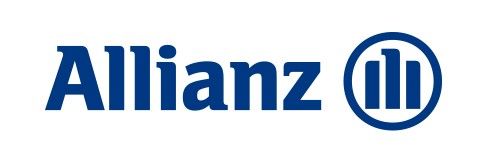
Press release -
More SMEs insufficiently insured or not covered at all
Inflation topples business interruption as the number one concern for small businesses in Allianz Commercial survey
A survey of sole traders and SME decision makers commissioned by Allianz Commercial has found that a growing proportion of small businesses do not have any insurance while those that do often fail to review their cover needs when their circumstances change.
The proportion of SMEs without any cover has grown from 40% in 2021 to 44% in 2022 and the main reasons respondents listed for not insuring their business are:
- The business is too small (mentioned by 47% of respondents)
- I work from home (42%)
- No customers come to my premises (34%)
- There’s not much to insure, e.g. no premises, no vehicles (33%)
The only legal requirements in the UK are for businesses with staff to have employers liability insurance and for those with vehicles to have motor insurance, but many SMEs would find it hard to recover from a loss without an insurance payout. For those that do have a policy in place, the level of compensation will depend on the level of cover they purchased.
Over the past 12 months, a significant share of SMEs have modified the way they operate. Some have increased the number of products or services they offer (19%), others have changed the nature of these products or services (16%), and some have gone back to the office or shop (16%). Yet, only 41% altered their insurance policy to reflect changes in their circumstances; a majority (52%) didn’t.
This is significant because it contrasts with what happened during lockdown last year. A previous wave of the survey, carried out in March 2021, found that SMEs also adapted their operations in the 12 months prior: 20% worked from home, 17% reduced products and services, 15% reduced staff. At the time, 48% changed their insurance policy to reflect their new circumstances. This year, only 41% did.
“Roughly speaking, SMEs were quick to reduce their coverage during lockdown but they didn’t review it upwards when their activities picked up again,” explains Helen Bryant, director of digital trading at Allianz Commercial. “With payroll, stock and profit coming back to pre-pandemic levels, they risk being underinsured if they don’t make the necessary adjustments – which might be tempting in the current economic climate. However, that would be a bad calculation in the longer term: if their level of cover doesn’t match their activity levels and they need to claim, the compensation they’ll receive may leave them out of pocket.”
Soaring prices are front of mind for SMEs. Asked about the major challenges and threats facing their business, survey respondents place inflation first (cited by 33% of them), cash flow second (29%) and competition third (27%). These are well ahead of business interruption (17%), which was the top concern last year (26%). In stark contrast, in March 2021, only 8% of respondents cited issues with paying outgoing bills.
Many SMEs seem overoptimistic about how long it would take them to recover from an unexpected event. For instance, if their commercial property was destroyed by a fire, 69% of respondents believe their business would be back up and running to its current level within one year. This doesn’t necessarily take into account all the work involved, from cleaning, securing, repairing the site and replacing equipment to getting planning permissions, dealing with environmental risks, retraining staff and winning back customers. A more realistic estimate is actually two years to get back to pre-loss levels.
Here are the elements SMEs should review to ensure they are adequately covered:
- Policy limits are often based on turnover, profit or payroll. If those are up, then limits need to be reviewed.
- Sums insured may have changed for buildings and contents, and most likely stocks as activities restart.
- The indemnity period for business interruption should generally be 24 months for SMEs to account for clearance, design and planning, rebuilding, replacing equipment and sourcing stock, and rebuilding the supplier and customer base.
Topics
Regions
About the survey
OnePoll surveyed 500 respondents, including 250 sole traders and 250 decision makers in businesses employing up to 249 people, between 16 and 23 March 2022.
OnePoll had previously surveyed a similar sample (500 respondents, including 250 sole traders and 250 decision makers in businesses employing up to 249 people) between 3 and 11 March 2021.
About Allianz Holdings plc
Allianz Holdings plc is the non-regulated holding company which owns the principal insurance operations of Allianz SE in Great Britain including Allianz Insurance plc.
About Allianz Group
The Allianz Group is one of the world's leading insurers and asset managers with more than 100 million* private and corporate customers in more than 70 countries. Allianz customers benefit from a broad range of personal and corporate insurance services, ranging from property, life and health insurance to assistance services to credit insurance and global business insurance. Allianz is one of the world’s largest investors, managing around 790 billion euros on behalf of its insurance customers. Furthermore, our asset managers PIMCO and Allianz Global Investors manage 1.7 trillion euros of third-party assets. Thanks to our systematic integration of ecological and social criteria in our business processes and investment decisions, we are amongst the leaders in the insurance industry in the Dow Jones Sustainability Index. In 2021, over 150,000 employees achieved total revenues of 148.5 billion euros and an operating profit of 13.4 billion euros for the group.
*Including non-consolidated entities with Allianz customers
These assessments are, as always, subject to the disclaimer provided below.
Cautionary note regarding forward-looking statements
This document includes forward-looking statements, such as prospects or expectations, that are based on management's current views and assumptions and subject to known and unknown risks and uncertainties. Actual results, performance figures, or events may differ significantly from those expressed or implied in such forward-looking statements. Deviations may arise due to changes in factors including, but not limited to, the following: (i) the general economic and competitive situation in the Allianz Group's core business and core markets, (ii) the performance of financial markets (in particular market volatility, liquidity, and credit events), (iii) the frequency and severity of insured loss events, including those resulting from natural catastrophes, and the development of loss expenses, (iv) mortality and morbidity levels and trends, (v) persistency levels, (vi) particularly in the banking business, the extent of credit defaults, (vii) interest rate levels, (viii) currency exchange rates, most notably the EUR/USD exchange rate, (ix) changes in laws and regulations, including tax regulations, (x) the impact of acquisitions including and related integration issues and reorganization measures, and (xi) the general competitive conditions that, in each individual case, apply at a local, regional, national, and/or global level. Many of these changes can be exacerbated by terrorist activities.
No duty to update
The Allianz Group assumes no obligation to update any information or forward-looking statement contained herein, save for any information we are required to disclose by law.







